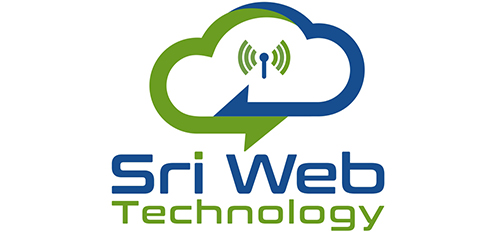When selecting a web host for your business, one of the most critical factors to consider is the uptime guarantee. Uptime refers to the amount of time your website is operational and accessible to users without interruptions. A robust uptime guarantee ensures that your website remains live and functional, minimizing disruptions and maximizing user experience. In this blog, we’ll explore what uptime guarantees mean for businesses, the impact of downtime on website performance and SEO, and highlight Sri Web Technology’s 100% uptime guarantee.
Understanding Uptime Guarantees
What Are Uptime Guarantees?
Uptime guarantees are assurances provided by web hosting companies that their servers will remain operational for a specified percentage of time. This is typically expressed as a percentage, such as 99%, 99.9%, or even 100%. For instance, a 99.9% uptime guarantee means that the hosting provider promises that your website will be accessible 99.9% of the time, allowing for a maximum of 0.1% downtime over a given period.
Why Uptime Guarantees Matter
For businesses, uptime guarantees are crucial because they directly impact the reliability and accessibility of their websites. A high uptime percentage means that your website will experience minimal downtime, ensuring that customers and visitors can access your site whenever they need to. This reliability is essential for maintaining a positive user experience and sustaining business operations.
The Impact of Downtime on Website Performance and SEO
User Experience and Customer Trust
Downtime can significantly affect user experience. When visitors encounter an unavailable website, they are likely to leave and may not return. This not only results in lost potential sales and leads but also damages your brand’s reputation. Consistent uptime fosters trust and confidence in your brand, ensuring that customers can rely on your website to be available whenever they need it.
Financial Losses
For e-commerce businesses, downtime can directly translate to financial losses. When your website is down, customers cannot make purchases, leading to lost revenue. Even a few minutes of downtime during peak hours can result in significant monetary loss. High uptime guarantees mitigate this risk by ensuring that your site remains operational and capable of processing transactions around the clock.
Search Engine Optimization (SEO)
Search engines like Google prioritize websites that offer a reliable and seamless user experience. Frequent downtime can negatively impact your search engine rankings. When search engines detect that your site is frequently unavailable, they may lower your ranking in search results, making it harder for potential customers to find you. Consistent uptime helps maintain and improve your SEO efforts, contributing to better visibility and higher organic traffic.
Website Performance Metrics
Downtime affects key performance metrics such as bounce rate, average session duration, and page views. High bounce rates occur when visitors leave your site shortly after arriving due to accessibility issues. Consistently high uptime ensures that your website performs optimally, retaining visitors and encouraging them to engage with your content.
Sri Web Technology’s 100% Uptime Guarantee
Sri Web Technology understands the critical importance of uptime for businesses. That’s why they offer an industry-leading 100% uptime guarantee, ensuring that your website remains accessible and functional at all times. Here’s how Sri Web Technology delivers on this promise:
1. State-of-the-Art Infrastructure
Sri Web Technology utilizes cutting-edge server infrastructure and data centers to provide unparalleled reliability. Their robust infrastructure is designed to handle high traffic volumes and maintain optimal performance, even during peak usage times.
2. Advanced Monitoring and Maintenance
The platform employs advanced monitoring tools to track server performance and detect potential issues before they cause downtime. Proactive maintenance and regular updates ensure that the servers are always in top condition, minimizing the risk of unexpected outages.
3. Redundancy and Failover Systems
Sri Web Technology’s hosting environment includes redundant systems and failover mechanisms. This means that in the unlikely event of a server failure, traffic is automatically redirected to backup servers, ensuring uninterrupted service.
4. Comprehensive Security Measures
Security is a top priority for Sri Web Technology. They implement robust security measures, including firewalls, DDoS protection, and regular security audits, to protect your website from threats that could cause downtime.
5. Expert Support Team
Sri Web Technology’s 24/7 support team is always available to assist with any issues that may arise. Their experienced professionals are equipped to handle emergencies promptly, ensuring that any potential downtime is resolved quickly.
Conclusion
Uptime guarantees play a vital role in choosing a web host. High uptime percentages ensure that your website remains accessible, providing a reliable user experience, safeguarding your revenue, and supporting your SEO efforts. Sri Web Technology’s 100% uptime guarantee sets a high standard in the industry, offering businesses peace of mind and the assurance that their websites will remain operational at all times. When selecting a web host, prioritize uptime guarantees to ensure your website’s success and continuity in an ever-competitive digital landscape.



